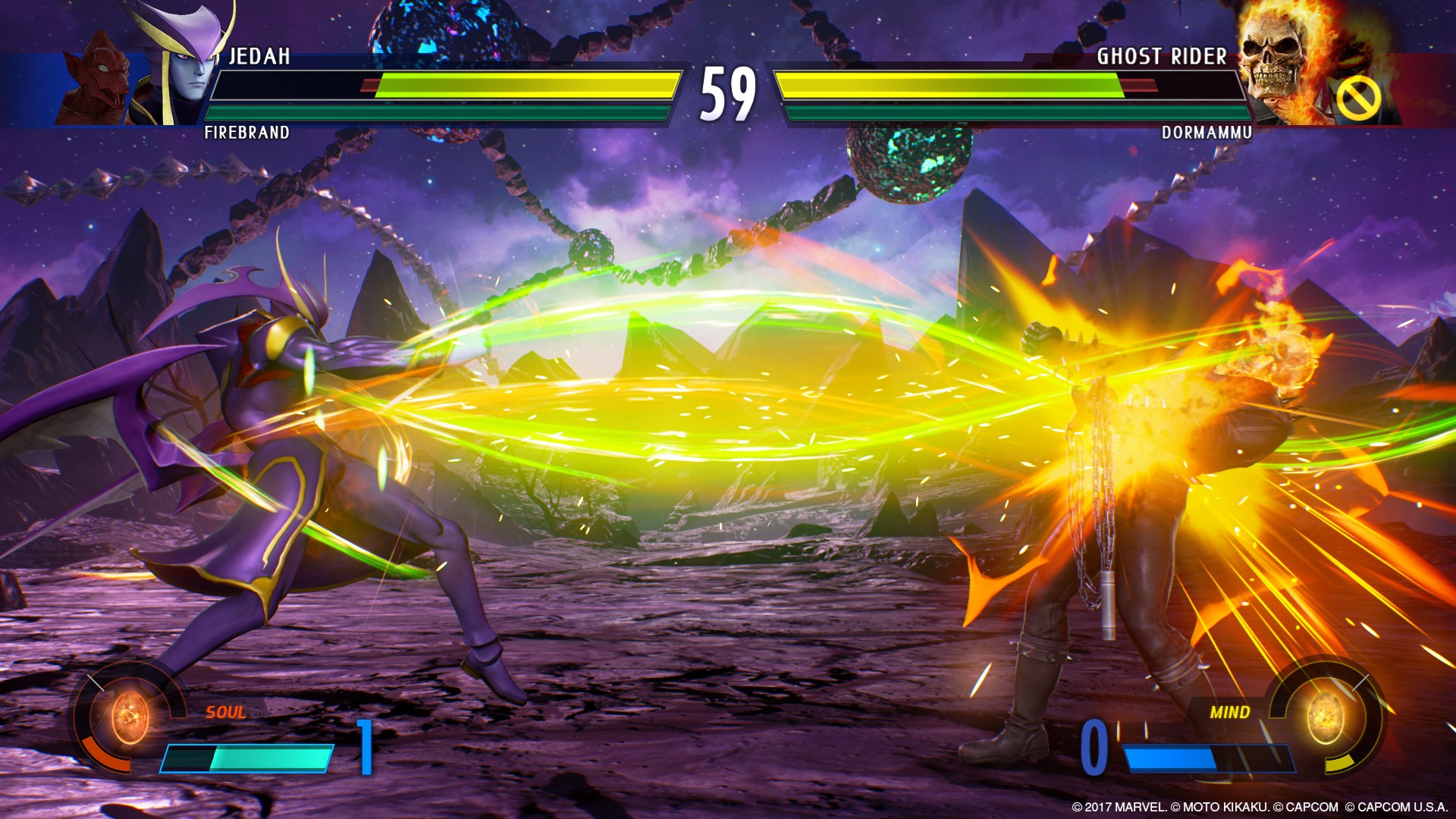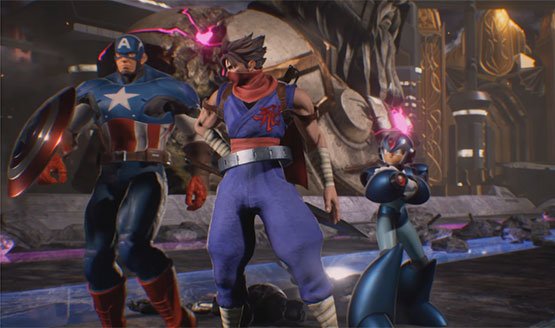https://youtu.be/V8opH_qxA_0
There are some games that wind up having a lot of baggage attached to them before they’ve even launched, and that’s certainly the case with Marvel vs. Capcom: Infinite. From messed up looking character faces to a roster that is missing signature characters, it’s easy to see why some fans are more tepid than hyped about the Capcom title’s release. Thankfully, none of the previous months of controversy has any impact on the end product, and Infinite gets to live or die on its own merits as a fighting game.
Those who haven’t kept up with Infinite‘s development might be shocked by how different it is compared to its predecessor Ultimate Marvel vs. Capcom 3. The frantic three-on-three combat has been replaced with two-on-two battles (although the action is still very much fast-paced), and the core combat has been altered to incorporate punch and kick buttons. These are significant changes (even though the high flying action and tag combinations are retained), and they definitely threw me for a loop when I first went hands-on with the game earlier this year. As soon as the player comes to grips with this not being MvC3, the sooner they’ll begin having fun.
The best place to learn the gameplay basics are in Mission mode, which has been a mainstay of Capcom fighting games for a while now. I’m not exactly crazy about how it displays all of the information, as the only options the player has is to either have the game refer to move names without displaying the required button inputs on-screen (which means players will have to constantly jump into the command list to find out what they’re supposed to do) or vice-versa, so there’s always some important information that isn’t clearly communicated. It’s a slight frustration for newcomers, but players will definitely get a grasp on the basics after completing the tutorial section. As one would expect, there are also 10 missions for each individual fighter, and these require the player to pull off some pretty complicated combos in order to pass them.
Solo Content
The basics are also explained in the surprisingly good cinematic story mode. I wasn’t exactly blown away by the chunk of it Capcom released as a demo after E3 2017, but it evolves into a fun couple hours of action. A lot of the fun comes from getting to see the odd couples of characters (I never knew how much I needed to see Frank West and Spider-Man interacting), and there are several laugh out loud funny moments like when it’s revealed that Mike Haggar does his mayoral paperwork while not wearing a shirt. While I was worried that it might just be a collection of one-liners without a solid plot to back things up, there’s a fun narrative that takes advantage of the characters’ pasts, and it’s capped off with a solid ending that’ll definitely have repercussions whenever MvC has its next outing.
While the cinematic story mode left me pleasantly surprised, I can’t say the same for Infinite‘s arcade mode. Like 3, it’s capped off with a monstrous boss fight against a gigantic boss that differentiates from all of the other battles. Thankfully, the big baddie is not nearly as cheap as Galactus was, but it still makes it feel like a chore to get through. I eventually wound up beating the arcade mode with every character in the last game since there was a character-specific ending sequence tied to it, but sadly Infinite continues the trend of fighting games not having ending tied to the mode. That really killed my desire to go through arcade mode with all 30 members of the roster, even though a trophy is tied to the feat.
By the time the player finishes the story mode, they’ll become very familiar with one of the game’s new mechanics – the Infinity Stones. These six gems each hold a different ability that can be used during battle at any time, and an even more powerful skill that can be activated after building up a meter. Similar to Street Fighter V‘s V-Triggers (except they aren’t tied to a specific character), these are battle changing maneuvers that really add a lot of additional strategy into the mix beyond picking characters.
Online Fun
While there are plenty of single-player options, Infinite is ultimately a competitive game meant to be played against others. It’s here where the intense gameplay truly shines. There are several different ways to play online ranging from ranked matches to player lobbies, and there’s even a section only for new players where they can play against others beginning to learn the basics. It’s really well thought out, and the netcode has provided very smooth action online so far.
Like many other Marvel vs. Capcom fans, I was slightly concerned about the character roster of Infinite. Despite not having missing some big names like Wolverine and losing some of my favorite characters in 3 (I miss you Phoenix Wright), I still found plenty to like about its 30 characters. New additions like Captain Marvel are a blast to learn, and I never felt like I was limited in my character selection. It’s a diverse roster filled with fun to play characters, and it’ll only get stronger when DLC characters like Black Panther and Monster Hunter get added in the future.
It ultimately doesn’t matter if you’re upset with the roster, because at the end of the day Marvel vs. Capcom: Infinite is a great way to spend a night with friends. The combat feels smooth, the depth is there for dedicated players, and it’s a much more feature-complete offering when compared to the launch version of Street Fighter V. There’s a ton here to like, and those who dismiss it will only be missing out on one of Capcom’s finest fighting games.
Marvel vs Capcom Infinite review code provided by publisher. Reviewed on PlayStation 4 Pro. For more information on scoring, please read our Review Policy.
-
Great online options
-
Story mode is often hilarious
-
Infinity Stones add new strategy
-
Mission mode could be better
-
Despite great animations, characters models don't impress
-
Arcade mode boss isn't fun
MvCI review
-
Marvel vs. Capcom: Infinite
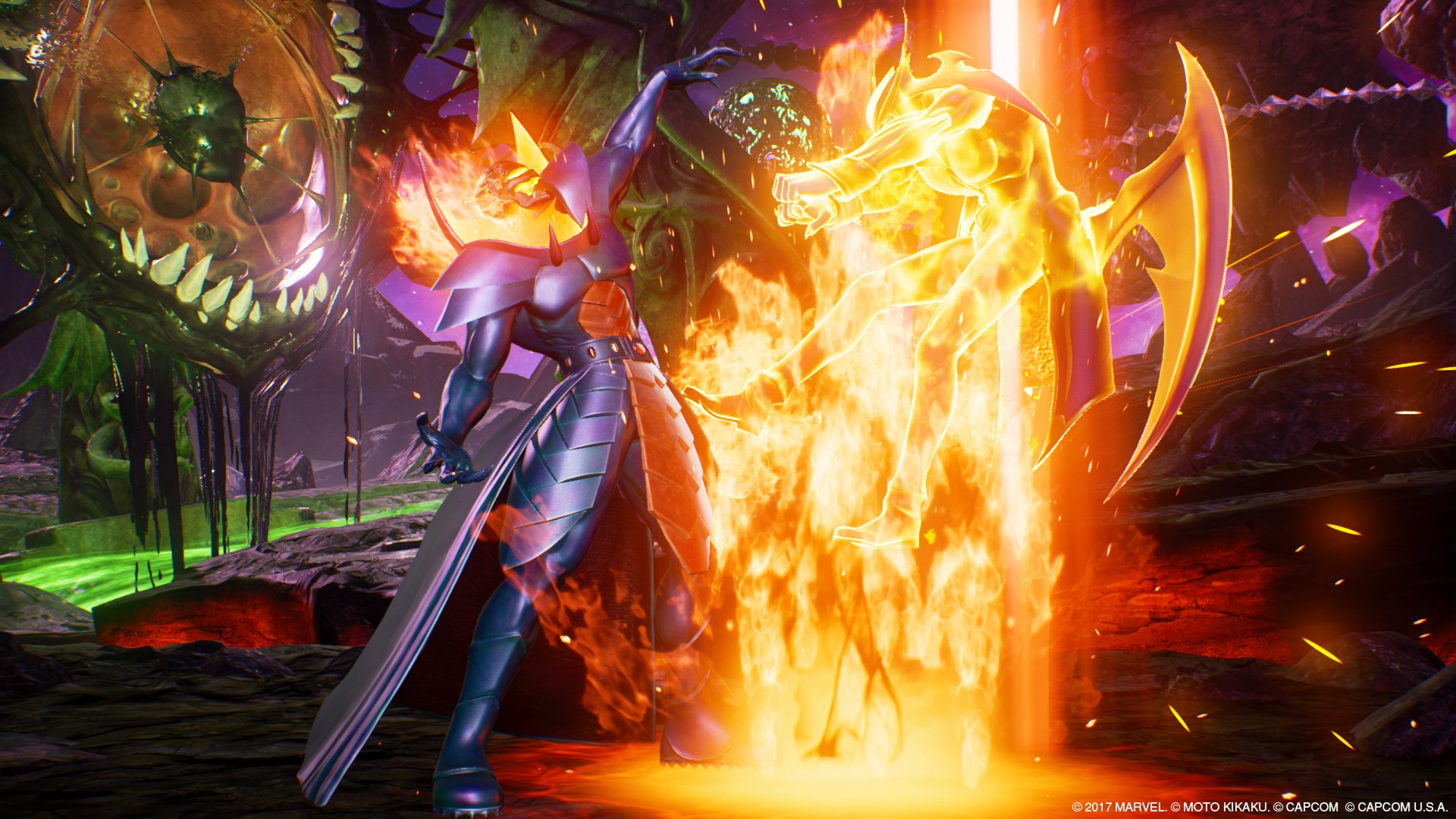
-
Marvel vs. Capcom: Infinite
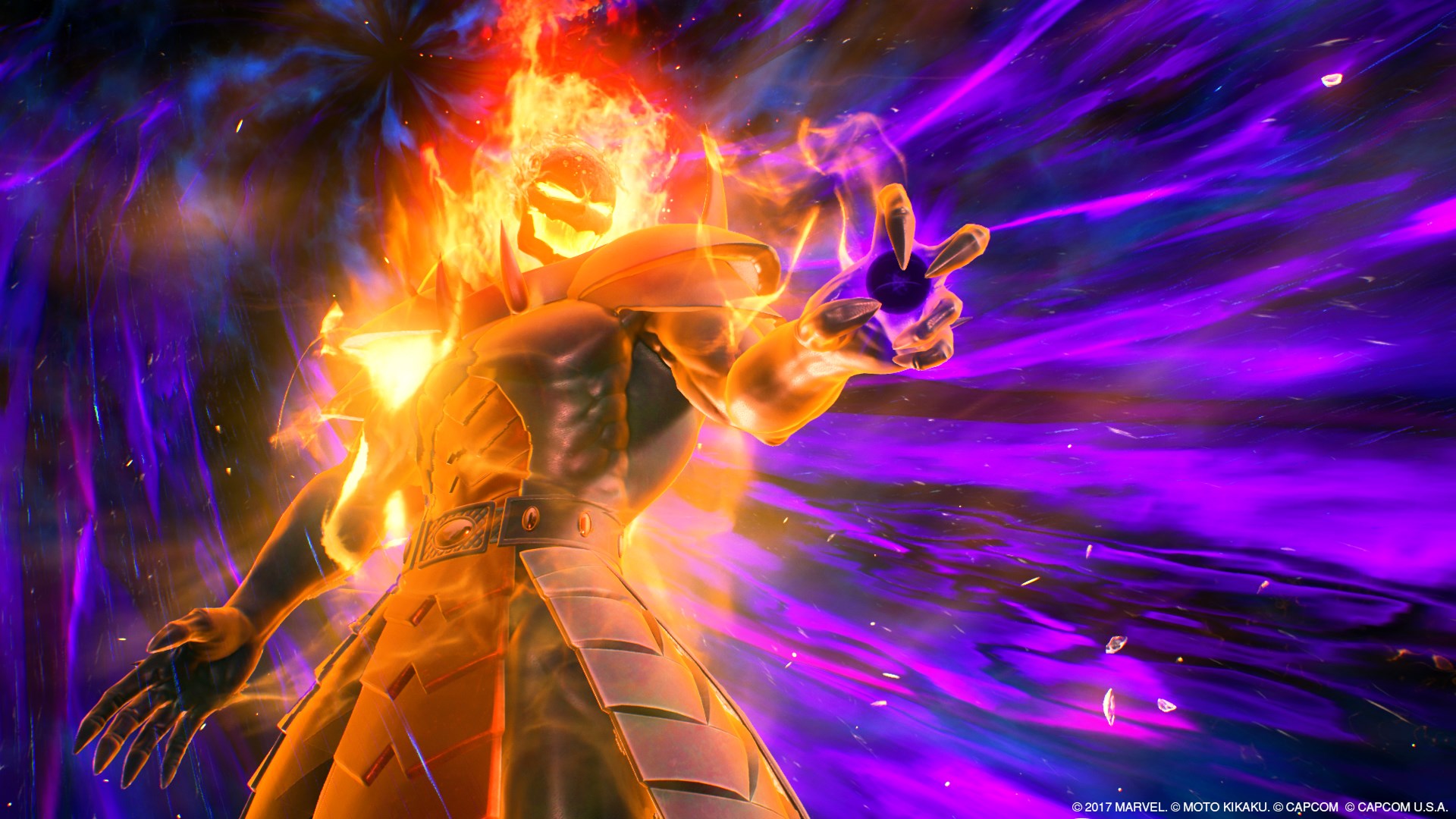
-
Marvel vs. Capcom: Infinite
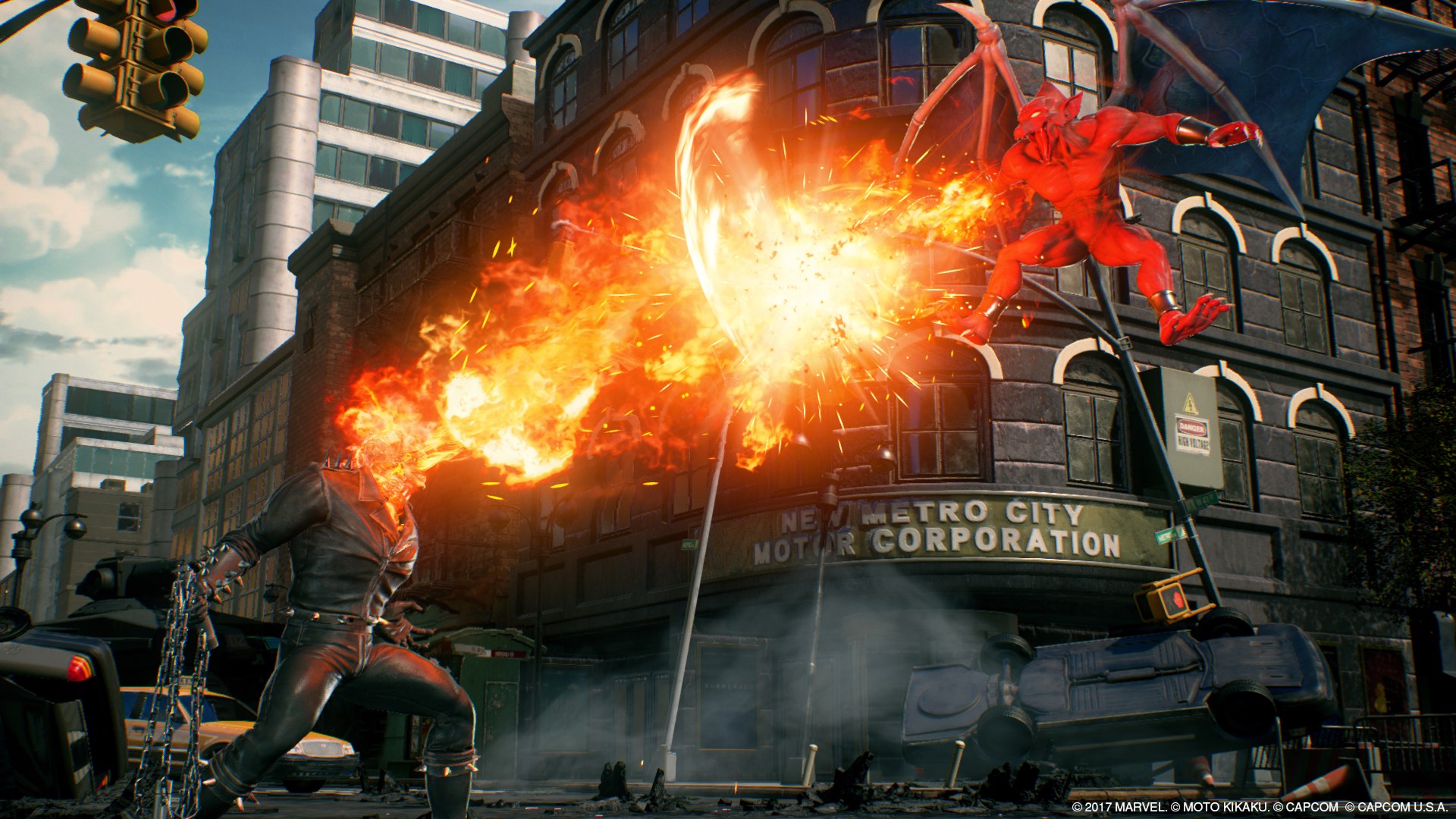
-
Marvel vs. Capcom: Infinite
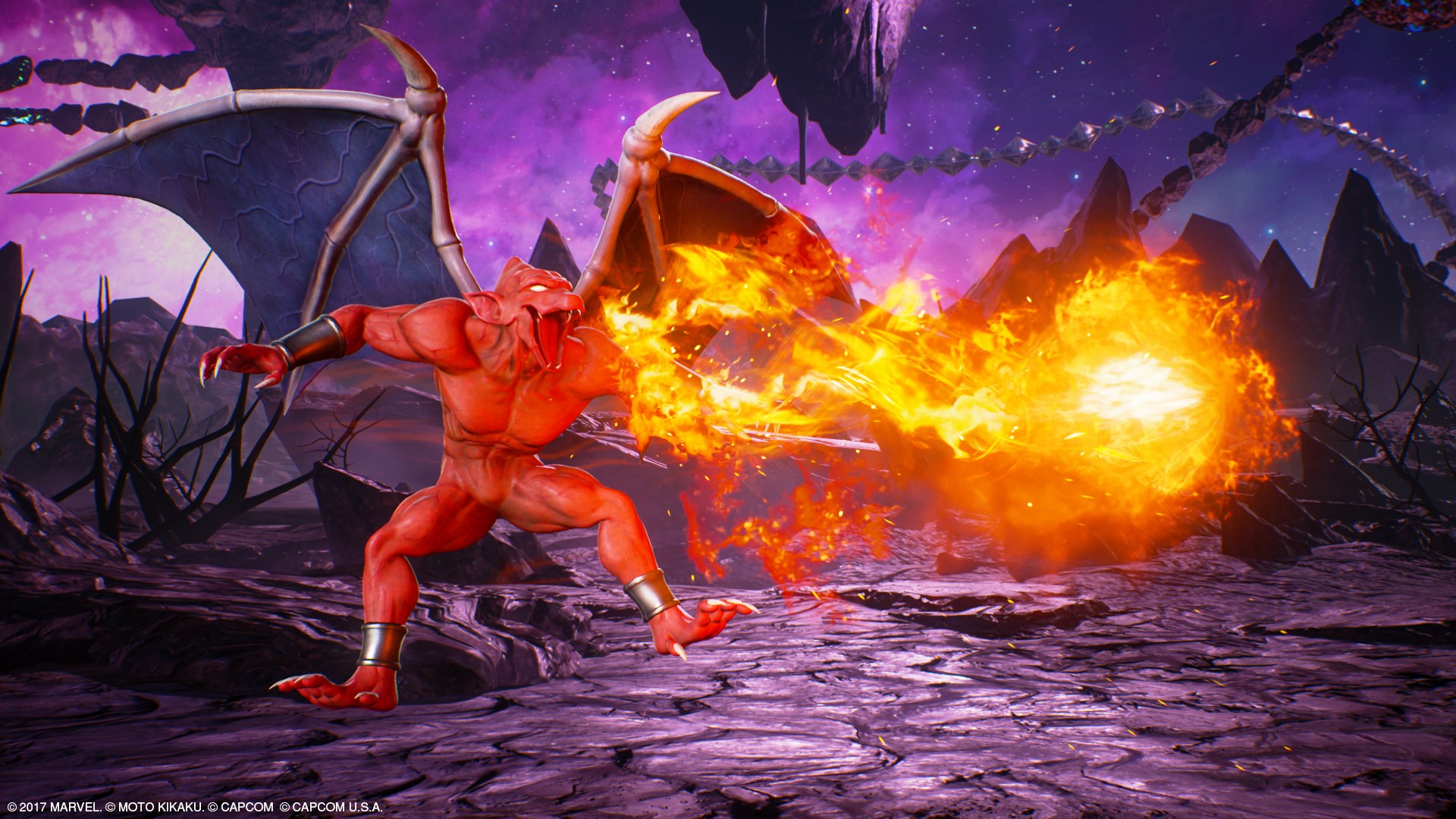
-
Marvel vs. Capcom: Infinite
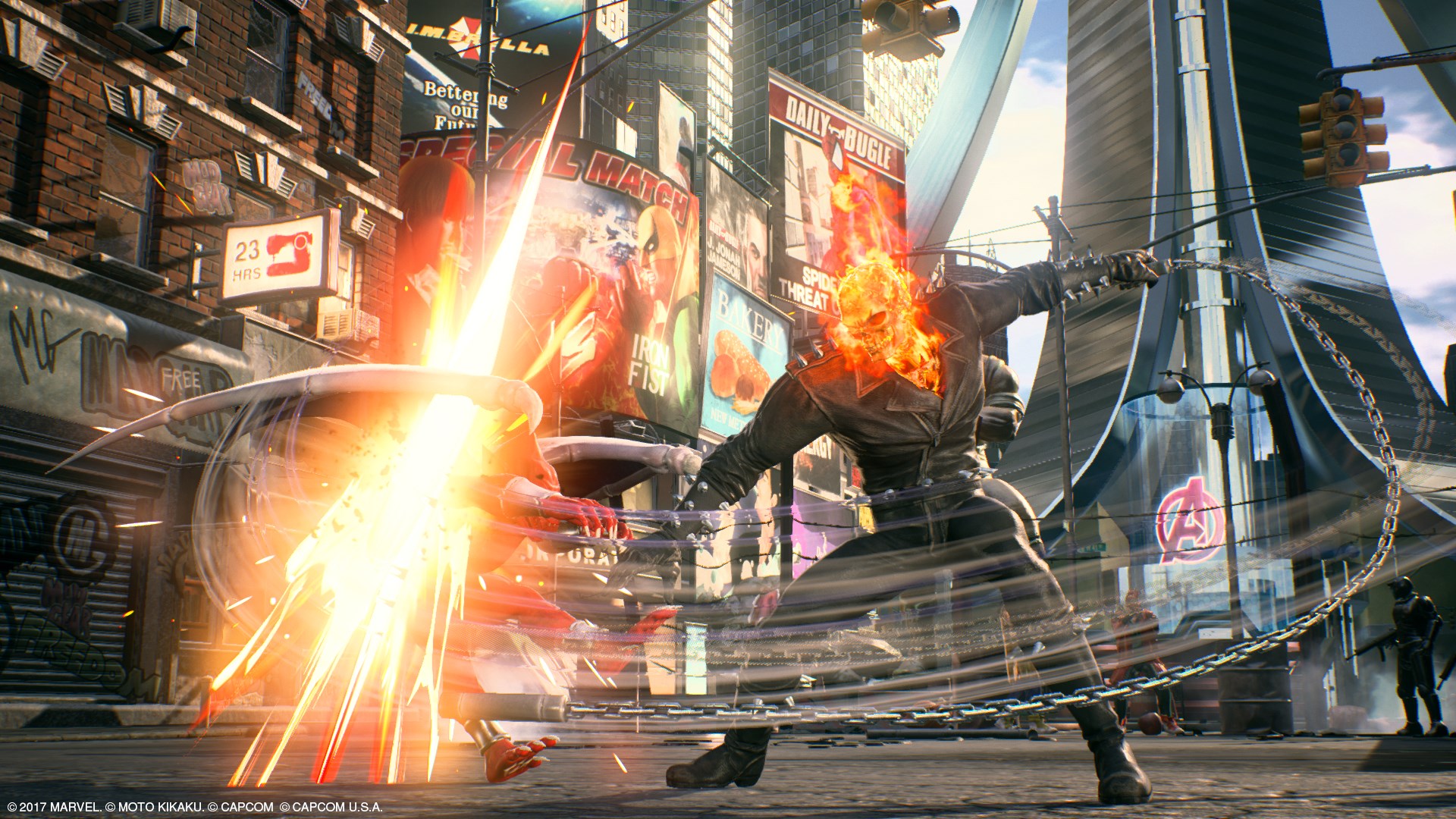
-
Marvel vs. Capcom: Infinite
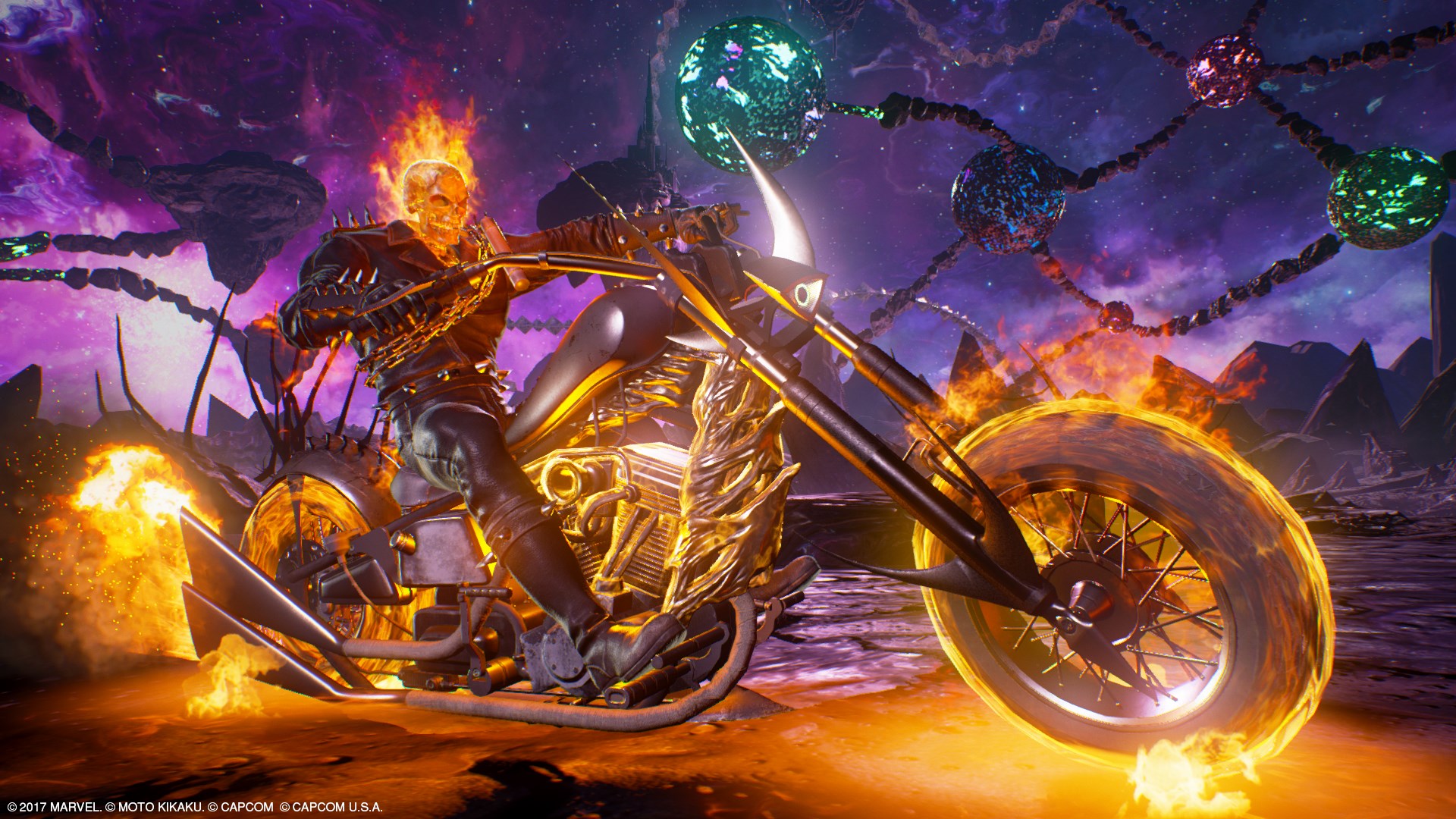
-
Marvel vs. Capcom: Infinite
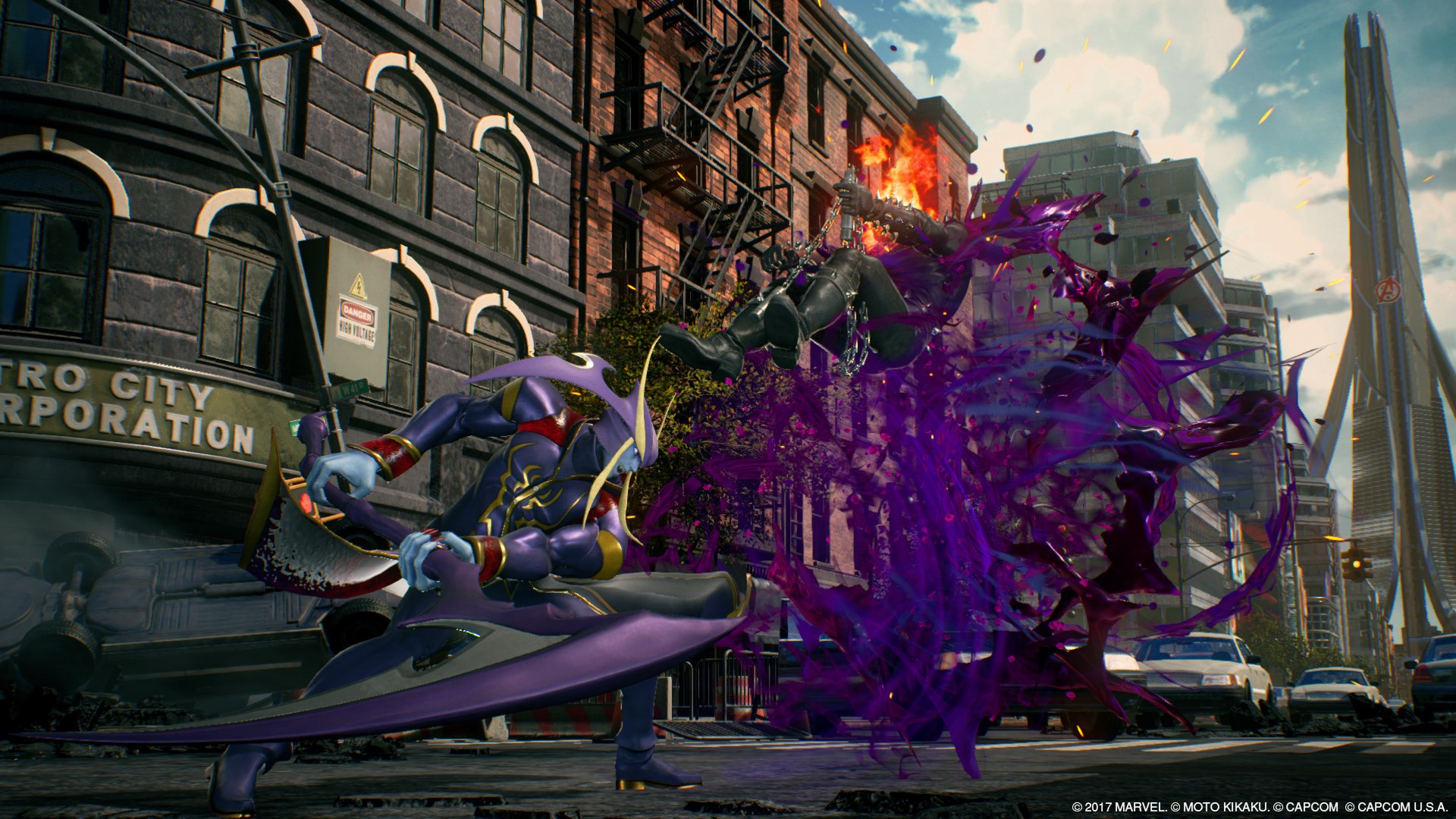
-
Marvel vs. Capcom: Infinite
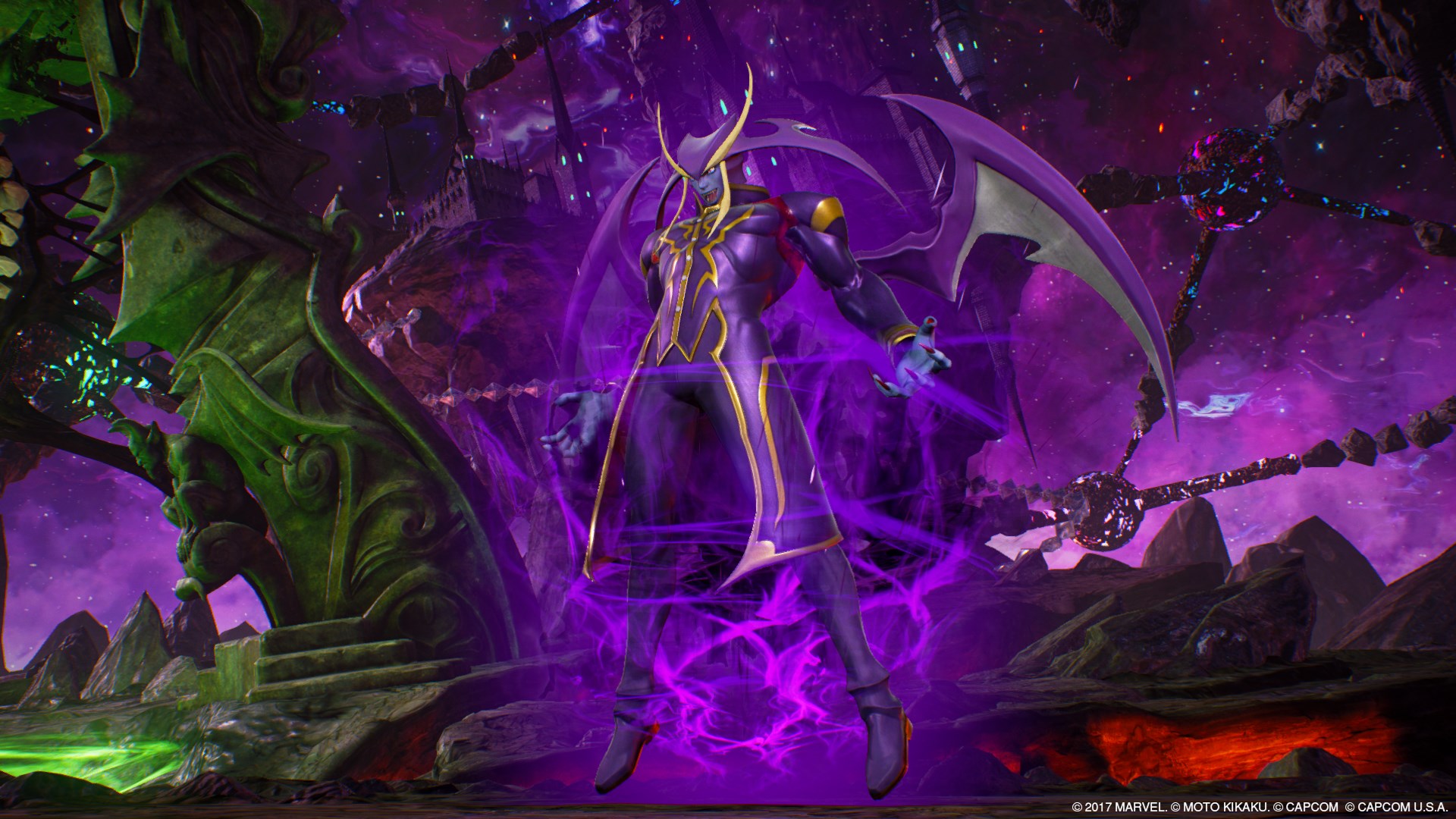
-
Marvel vs. Capcom: Infinite
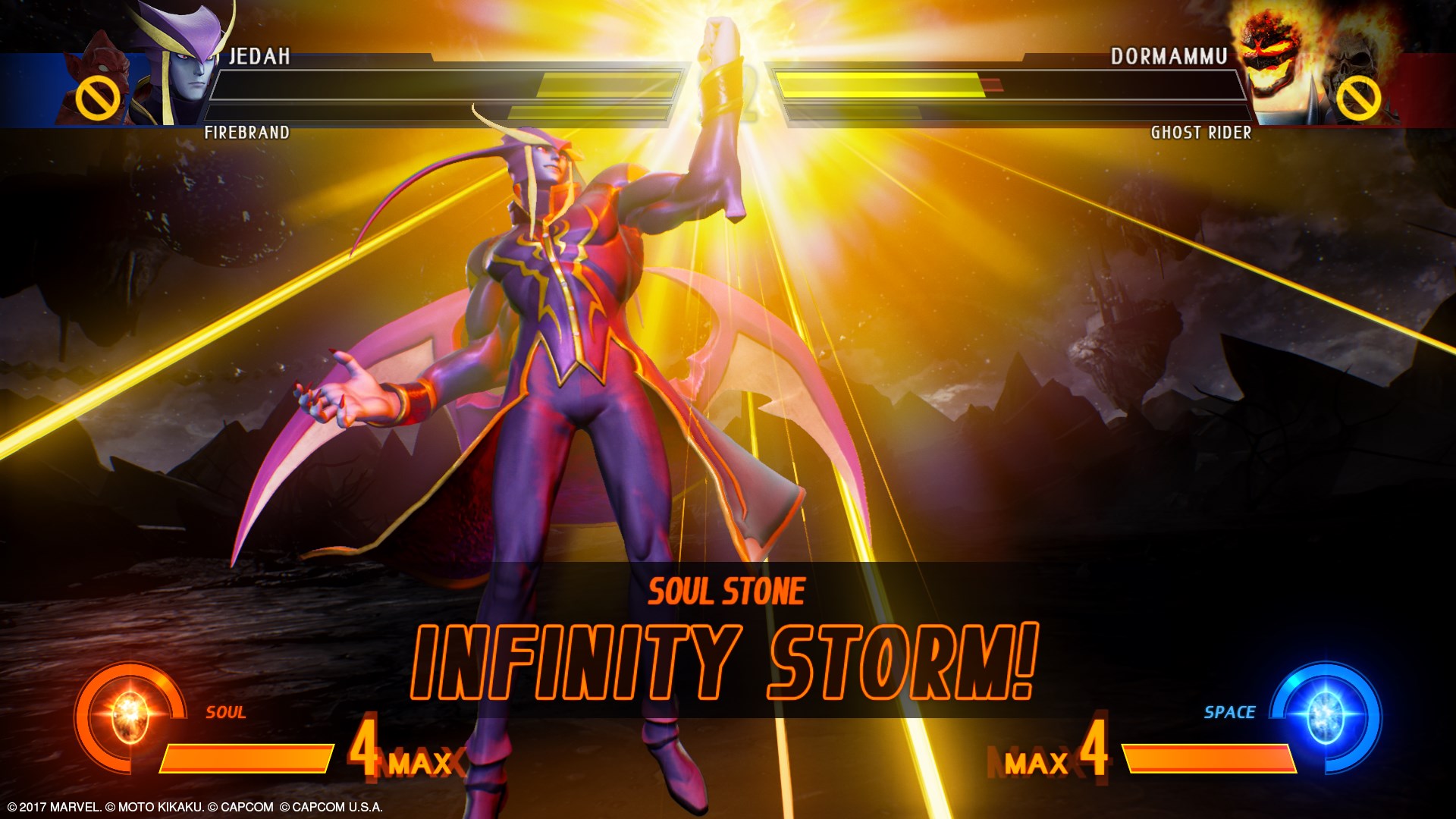
-
Marvel vs. Capcom: Infinite
